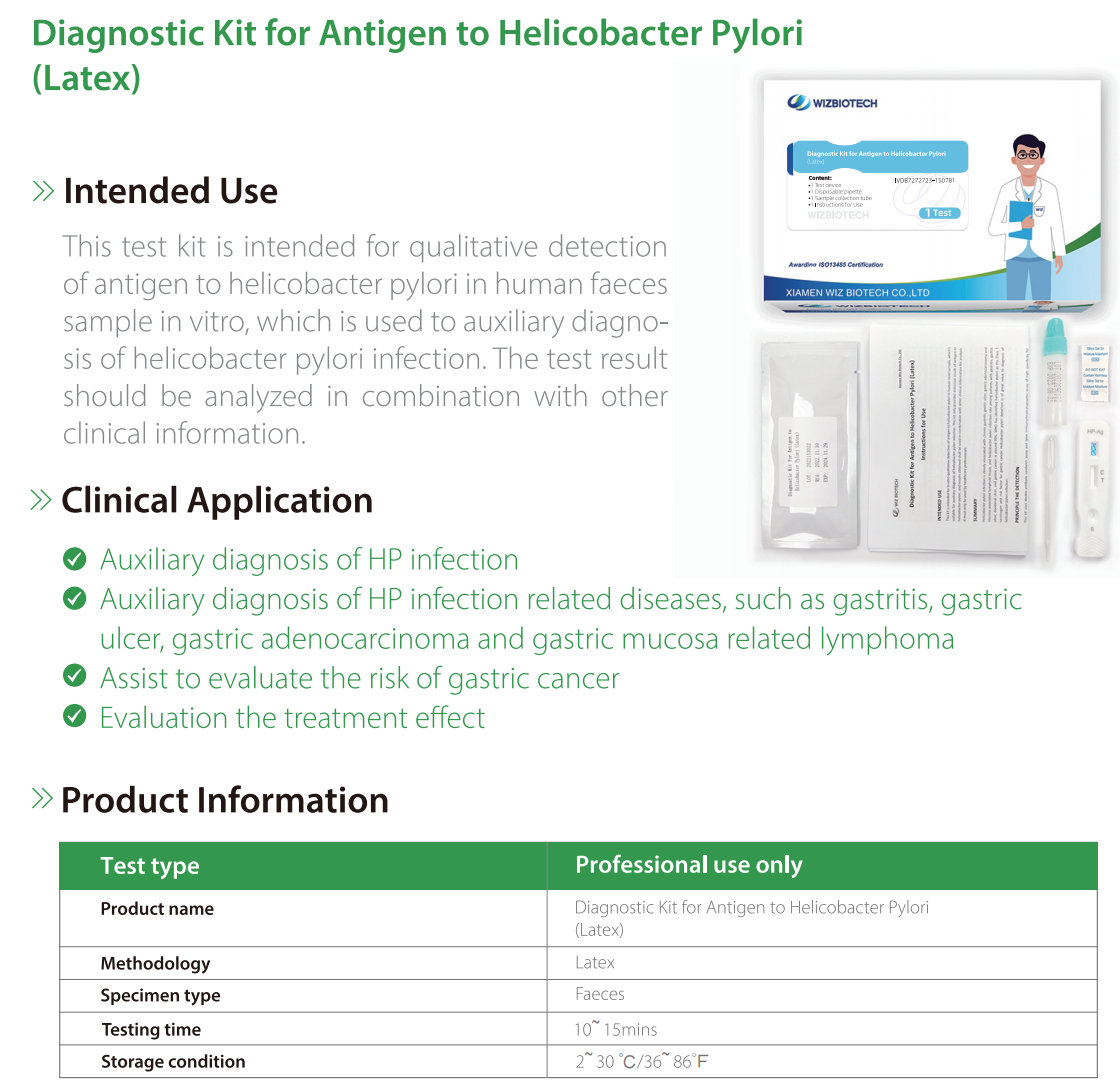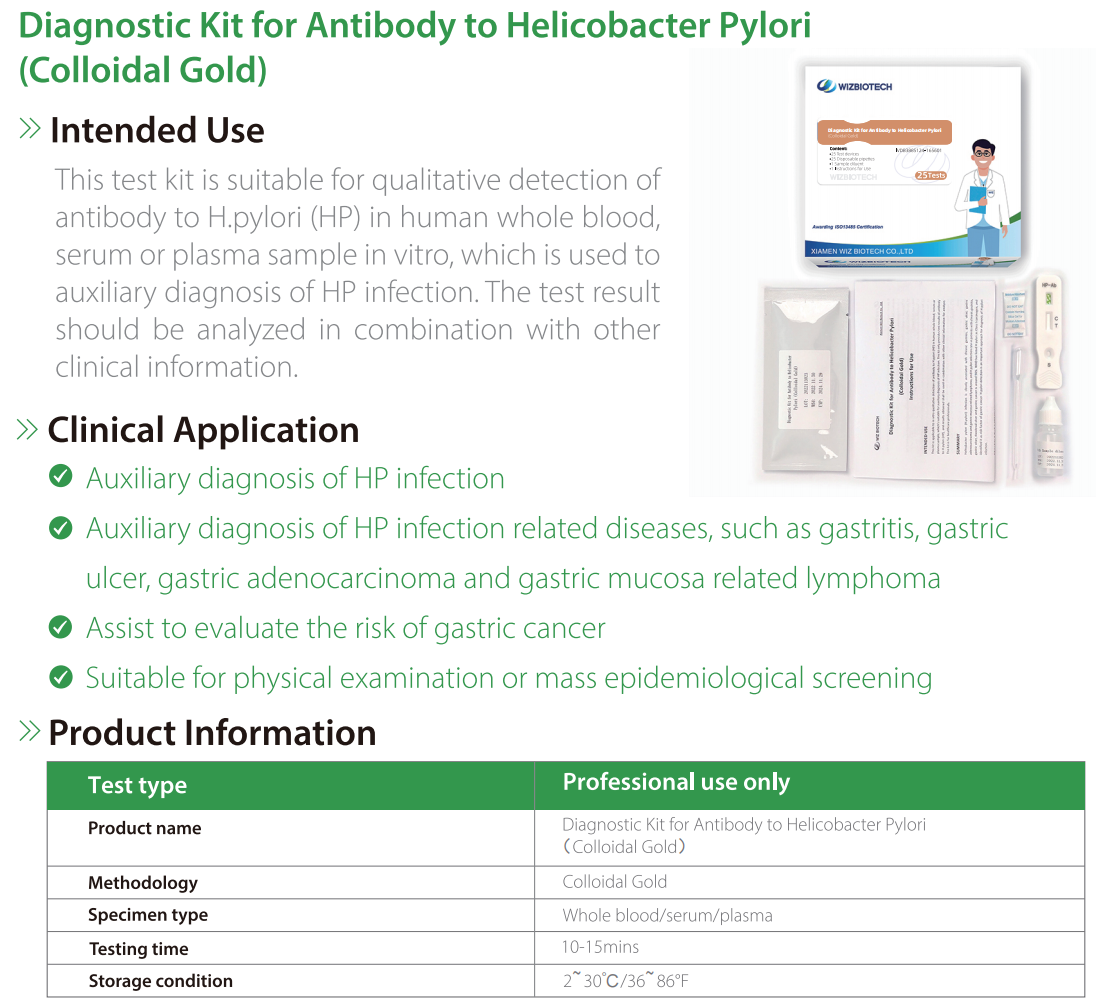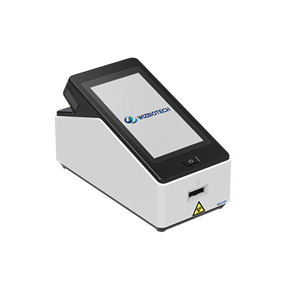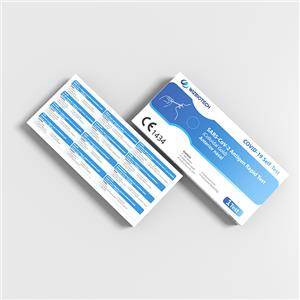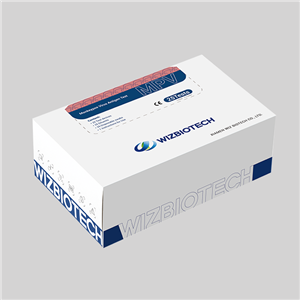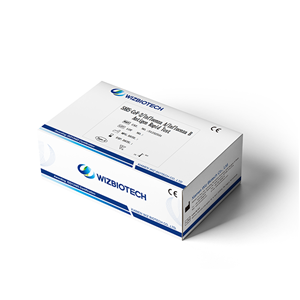Expert consensus on screening and management of Helicobacter pylori infection in health checkup population
Helicobacter pylori (H. pylori) infection is a chronic infectious disease, which is closely associated with a lot of upper digestive tract diseases and some outside-gastric diseases. According to the statistics of the China National Cancer Center in March 2023, gastric cancer is one of the high incidence malignant tumors in our country. According to the location classification, non-cardia gastric cancer accounts for 85%~90% of the total, of which 90% is related to H. pylori infection; According to the tissue type, more than 80% is the intestinal gastric cancer, its occurrence and development mostly in line with the Correa theory, that is,normal gastric mucosa -- > superficial gastritis -- > atrophic gastritis -- > intestinal metaplasia -- > dysplasia -- > gastric cancer development pattern, this type of gastric cancer is almost all attributed to H. pylori infection.
At present, a series of consensus and guidelines on H. pylori infection diagnosis and treatment have been published in China, but the follow-up management of positive H. pylori detection in health checkup population lacks standard, and no corresponding consensus on the screening and management of H. pylori detection in this type of Opportunistic population. This consensus is based on the published domestic and foreign relevant guidelines, consensus and expert recommendations, combined with the clinical research evidences of literature search, focusing on sharing the screening and detection technology of H. pylori infection in health checkup, the management of H. pylori positive people, etc. It aims to standardize the screening and management of H. pylori infection in health management institutions, effectively reduce H. pylori infection, and prevent the risk of gastric cancer and other diseases.
1. Question 1, Is it necessary to screen H. pylori infection in the health checkup population?
Statement 1: At present, the incidence of H. pylori infection and gastric cancer in our population is still high (Evidence Level: 1; Recommendation Level : A), it is necessary to carry out screening in the health checkup population (Evidence Level: 4; Recommendation Level: C).
Statement 2: H. pylori screening is recommended to be included into the routine physical examination items of healthy adult clients; Asymptomatic young adults (20-40 years old) as the key screening objects have the obvious cost effectiveness (Evidence Level: 5; Recommendation Level: D)
2. Question 2: What is the appropriate detection technology for H. pylori screening in the health checkup population?
Statement 3: The non-invasive method for the diagnosis of H. pylori infection is preferred in the asymptomatic population, among which Urea breath test is the most recommended method (Evidence Level: 1; Recommendation Level: A), Monoclonal fecal antigen test can be used as an alternative, the latter is more convenient for home sampling and submission (Evidence Level: 2; Recommended Level: B).
For safety consideration, the 13C breath test or the monoclonal fecal antigen test are recommended for young objects who are planning to have children in the near future.
Monoclonal fecal antigen test has been clinically verified to have good sensitivity and specificity, and its accuracy is similar to that of UBT. Using 13C-UBT as the gold standard, the sensitivity of fecal antigen can reach 93.8% and the specificity was 96.6%.
1) Fecal antigen test does not require fasting, is easy to collect, safe and simple, rapid detection, sampling kit can be stored at ambient temperature for a long time, easy to transport, and at the same time it can be more convenient for home sampling and testing.
2) It has advantages in the detection of people with poor UBT cooperation (such as some elderly people, children, etc.), and is suitable for all groups (ordinary adults, pregnant women, the elderly, etc.).
3) Self-tested monoclonal fecal antigen test can be used for epidemiological investigation, thus saving manpower and space.
The monoclonal fecal antigen test may also be false negative when the stool characteristics change (such as watery stool), the gastric mucosa is severely atrophied or enterodized, and drugs such as acid suppression and antibiotics are taken.
In addition, since the principle of fecal antigen detection is antigen-antibody reaction, different regions use different antigens, which may lead to heterogeneity of results, so more large sample studies are needed to further verify.
Statement 4: The diagnosis of H. pylori infection requires a comprehensive evaluation of drug influence, specific test values and different test methods (Evidence Level: 2; Recommendation Level: B).
3. Question 3: How to manage H. pylori test positive objects reasonably and effectively?
Statement 5: For H. pylori positive objects who are ≥40 years old, have gastrointestinal symptoms, have other gastric cancer risk factors, need to take anti-embolic drugs, NSAIDs and glucocorticoids for a long time, it is recommended to conduct the eradicate treatment and refer to a specialist for gastroscopy and other evaluation and intervention (Evidence Level: 4; Recommendation Level: C)
Statement 6: There is an increased risk of adverse drug reactions in the elderly, so the eradication of H. pylori in the elderly who are positive should be subject to a benefit-risk assessment and individualized treatment (Evidence Level: 2; Recommendation Level: C).
Statement 7: "Family-based prevention and control of H. pylori infection" is an important strategy to prevent H. pylori infection and transmission, and adult members of the family should be screened and the H. pylori positive should be treated (Evidence Level: 3; Recommendation Level: C).
Statement 8: Antibiotic resistance and medication compliance are closely related to the eradication effect of H. pylori. It is important to standardize the eradication treatment and management, and should emphasize the importance of enhancing the eradication rate of first treatment (Evidence Level: 2; Recommendation Level: C).
Statement 9: For those who turn negative 4 to 6 weeks after the completion of H. pylori eradication treatment and those who are screened negative for H. pylori, it is recommended that the interval of follow-up review can be determined according to individual circumstances (Evidence Level: 5; Recommendation Level: D).
China is a country with a high incidence of H. pylori infection and gastric cancer. The clinical outcome of H. pylori infection is difficult to predict, and there is still a risk of serious disease in those who are not eradicated. Therefore, it is very important to confirm the results of the eradication treatment, and all those who receive the eradication treatment need to carry out the review of the status of H. pylori. In order to avoid the influence of therapeutic drugs on the test results, the review must be conducted 4 to 6 weeks after the end of eradication therapy. It is recommended to use non-invasive methods, UBT is the preferred method, monoclonal fecal antigen test can be used as an alternative; It is not recommended to use serological antibody detection for judging the eradication of H. pylori within 1~2 years after the end of eradication therapy.
4. Question 4, how to improve the health checkup practitioners and populations' correct understanding of H. pylori infection?
Statement 10: Health checkup practitioners must strengthen the scientific cognition of H. pylori infection (Evidence Level: 3; Recommendation Level: C).
Statement 11: Health checkup practitioners should carry out diversified and interactive health education through various ways to improve the treatment compliance and prevention awareness of H. pylori positive subjects (Evidence Level: 3; Recommendation Level: C).
Statement 12: For health checkup H. pylori screening positive person, should help them correctly understand the harm of H. pylori and related disease risks, and guide the scientific standardized hierarchical management (Evidence Level: 3; Recommendation Level: C).
Focus on gastrointestinal health screening, Wiz provide both H.pylori antigen and Antibody test.
